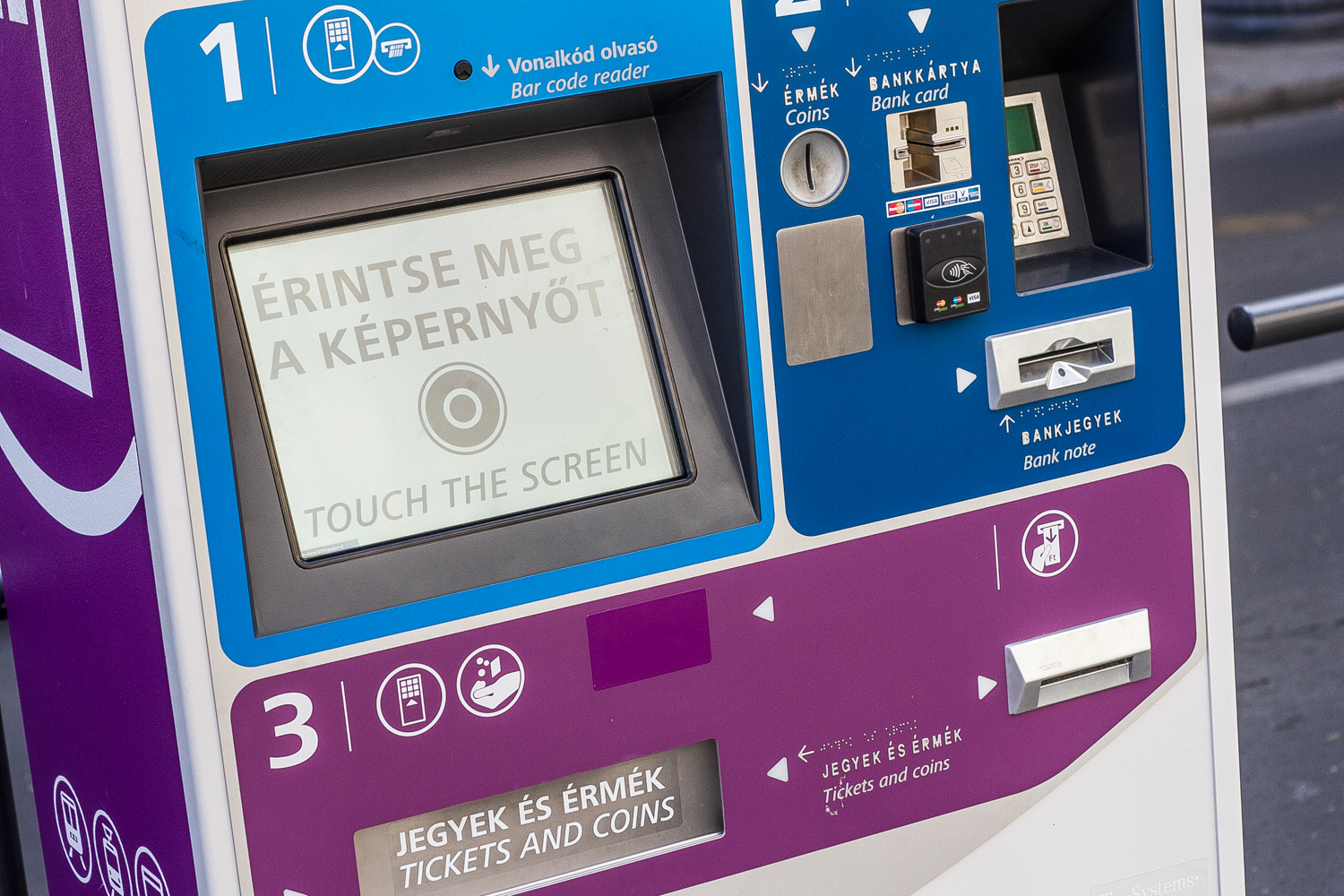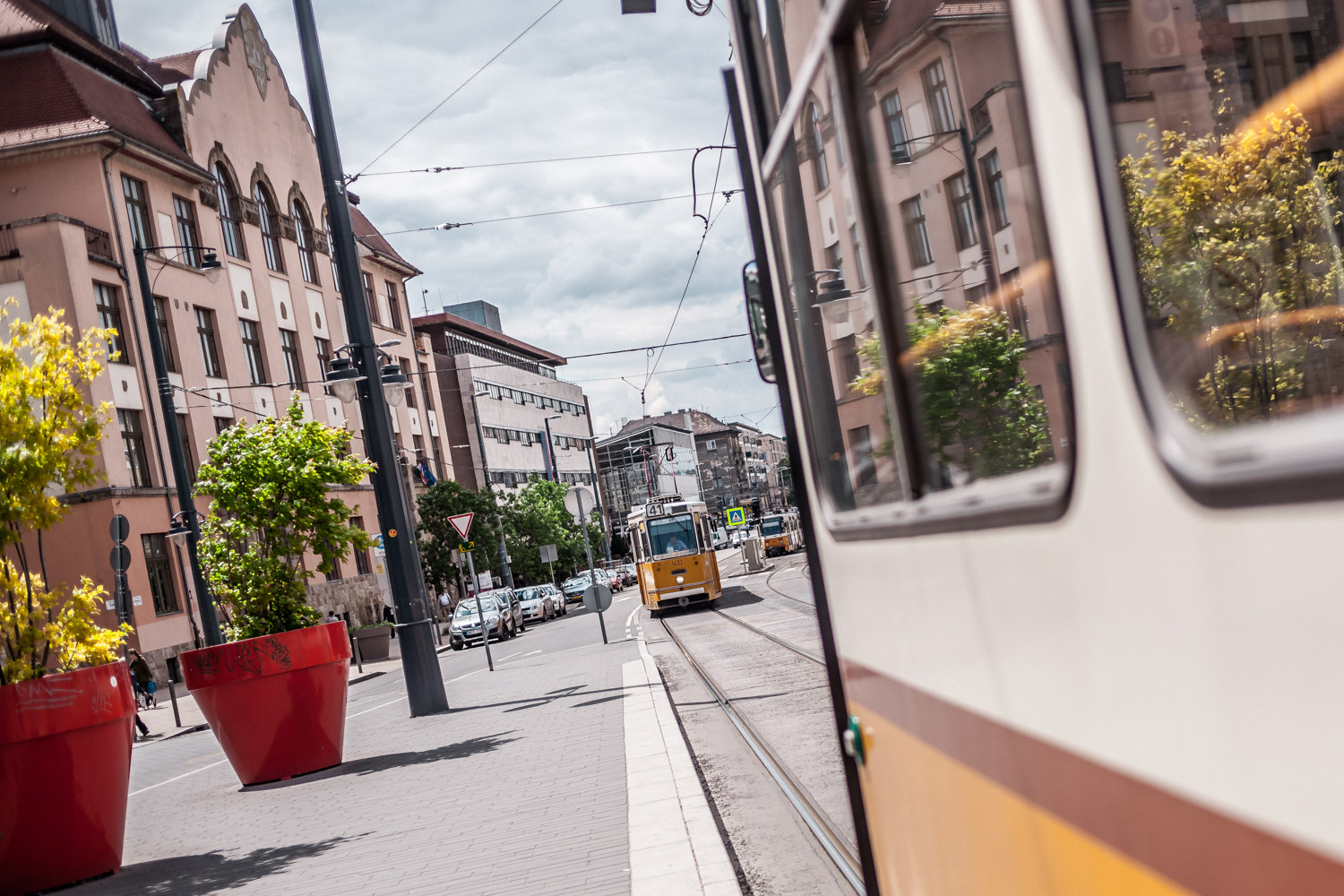The Budapest Transport Center, known as the BKK, says its changes will make it easier and quicker to buy tickets and reduce ticket fraud. The revamped system includes changes to how tickets look and the way ID numbers are printed on travel passes. The BKK has also introduced hundreds of new automatic ticket machines citywide with a goal of easing the process to buy tickets. A bike-sharing scheme as well as the Danube ferries also provide more options for getting around Budapest.

Ticket machines
Some
300 new automatic ticket machines are now
in place, providing three times more places to buy tickets than were previously available. Some of these ticket machines are available 24 hours a day. There
are
also six times more places to buy tickets using a bank card, and ticket machines also
accept notes and coins .
Ticket machines can now be used to buy single-use tickets, or monthly, quarterly and yearly passes. The machines operate in multiple
languages ,
including
English.

New tickets The new ticket machines provide tickets and passes with a new look that are printed on-demand on
special thermal paper , and all ticket booths are converting to issue these new tickets.
Old paper tickets
and the
bound booklets of ten tickets
are being phased out.
As you can see in
the above image, the reduced price for ten-packs of tickets is still available, but now they are issued as individual tickets – they are no longer stapled together.Single-use tickets are still 350 HUF, and buying ten at once for 3,000 HUF reduces the price to 300 HUF apiece.
Ticket machines can also now be used to buy monthly, quarterly, or yearly travel passes.

Travel passes
The major change relating to travel passes is that an ID number needs to be provided at purchase, regardless of if
this is done at a ticket booth or ticket machine. This number will be automatically printed onto the pass instead of being written by hand by the purchaser. Official identification such as student IDs, BKK photo IDs, passports, and driver's licenses can be used.
Travel passes can now be purchased at ticket machines , but an ID number needs to be keyed in.

What’s the same?
- Ticket prices have not changed –
view ticket prices here .
- Single-use tickets still need to be validated when you use public transport.
- If asked by a ticket inspector,
transport-pass holders must show the ID that corresponds with the ID number printed on the pass.
- Single-use tickets and travel passes are valid across the metro, tram, bus and trolleybus networks.
- Only transport passes (such as monthly passes) are valid on the ferry service. Single-use tickets can be purchased on board for 750 HUF.

Faster and fairerBKK authorities claim that pre-printed tickets with the ID number are harder to forge, reducing ticket-fraud and making the system fairer. Budapest's transport authority says that the new machines will result in shorter lines, and that receipts are now printed faster.
Old tickets Hungary's infamous
bureaucracy in on
full
display with the BKK's description of the validity of old tickets. Basically, old tickets without any silver security strip can no longer be used (these were
typically before 2012). However,
old tickets with a silver security strip can (in most cases)
be exchanged for the full or partial value of a new ticket . Try your luck with exchanging old tickets at the Budapest Transport Centre (Pest VII, Akácfa Street 15).

MOL Bubi Bikes
The so-called
MOL Bubi bike-sharing scheme is currently under trial in the city. 1,100 bicycles are available at 76 docking stations as part of the trial. The bike-share system is aimed at helping people travel shorter distances around the city in an
environmentally friendly way.
The bikes are available by registering in person and making a one-time payment for a transport pass. The other option is to make a bank-card payment at the docking station, but in this case a deposit is required. It's not yet clear when the system will be fully operational.

Danube ferry service
Now that summertime is here, the BKK’s Danube ferry service is in full swing. Check the timetable and stops here. Northbound, the final stop is the
Római fürdő
– the "Roman bank", where you can enjoy a meal beside
the Danube. Southbound, the end point is the A38 boat stop. Other stops along the way include
Jászai Mari Square
,
Szent Gellért Square, and
Boráros Square
.
Riding
the entire
route takes 90 minutes. It's worth checking the stops you wish to use before heading off, because water levels and other factors can change the route.
One-way tickets can be purchased on board for 750 HUF. Transport passes are valid on the ferry on weekdays only.




